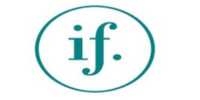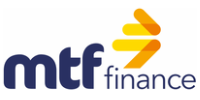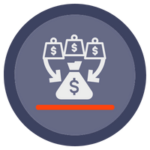Debt consolidation loans
We show you how to get the best debt consolidation loan for you and let you compare the latest loan deals from NZ lenders.

The breakdown
- A debt consolidation loan can make paying off debt more manageable and mean you pay less in interest.
- A secured debt consolidation loan will offer the lowest interest rate and make approval more likely, but your collateral is at risk.
- A good deal on a balance transfer credit card may be a better alternative if you only have credit card debt.
Author: Kevin McHugh, Head of Publishing at Banked.
Compare debt consolidation loans
Use our handy comparison table to find the best debt consolidation loan with the right interest rate and terms for you.
Rates reviewed and updated: 27 October 2025.
| Lender | Interest rate (p.a.) | Loan types | Terms | Establishment fee | Learn more |
|---|---|---|---|---|---|
 Instant Finance
Instant Finance
|
9.95% - 29.95% | Secured and unsecured | 3 months to 7 years | From $100 to $220 | |
 MTF Finance
MTF Finance
|
9.90% to 23.25% | Secured and unsecured | 3 months to 5 years | Up to $380 | |
 The Co-operative Bank
The Co-operative Bank
|
9.95% to 17.75% | Unsecured | 6 months to 5 years | $155 | |
 ANZ
ANZ
|
13.90% | Unsecured | 6 months to 7 years | $0 | |
 Westpac
Westpac
|
13.90% | Unsecured | 6 months to 5 years | $0 | |
 ASB
ASB
|
13.90% | Unsecured | 6 months to 7 years | $99 | |
 BNZ
BNZ
|
13.90% | Unsecured | 6 months to 7 years | $0 |
What is a debt consolidation loan?
A debt consolidation involves using one loan to pay off debt from multiple other sources. The point of is to make repayments easier, and to pay less in interest and fees.
These loans can be used to pay off credit cards, other loans, bank overdrafts and most other types of debt. They can make paying off outstanding debts more manageable, but it is important that you find the best loan for you.
How it works
A debt consolidation loan lets you move debt from several other places to that one loan. This means that instead of making payments to different lenders at different interest rates each month, you make just one payment at one interest rate.
For example, you might have debt in the following areas:
- Credit card: The average interest for a credit card is around 18%. Some credit cards also have an annual fee.
- Car loan: Car loans are often secured against the car purchased, which means they typically have a lower interest rate than an unsecured loan. Compare car loans in our guide.
- Bank overdraft: As well as interest rates ranging from 10% p.a. to 23% p.a., bank overdrafts also commonly have a fee of $3-$5 per month.
A debt consolidation loan could be used to pay off the amount owing on each of these, leaving you with one monthly payment instead of three.
You could also save money if the amount you pay in interest and fees is less for the loan than the combined amount for the credit card, car loan and overdraft.
The pros and cons and of a debt consolidation loan
Benefits
- Easier to manage: Juggling debt and managing different banks and lenders can be stressful and difficult to keep track of. With a debt consolidation loan you only make payments to one lender at one interest rate.
- You could pay less on interest: You may save money by paying less on interest and fees, especially if your other debts are high interest.
- Improve your credit score: Because it is easier to manage one debt than several, it will be easier to make regular repayments and help your credit rating.
Drawbacks
- Fees: Establishment fees are common for debt consolidation loans and they can be substantial, depending on the lender and loan amount.
- Collateral might be at risk: If you choose a debt consolidation loan that’s secured against your vehicle or home, your asset could be repossessed if you do not make the payments.
- Not suitable for everyone: There may be better options available. If you just only have credit card debt, a low or 0% interest balance transfer credit card deal might be better for you.
Can you get a debt consolidation loan if you have bad credit?
The simple answer is yes, you can get a debt consolidation loan if your credit history is bad.
Bear in mind that lenders see applicants with bad credit as being higher risk and the loan interest rate will be higher to account for this risk. But that doesn’t necessarily mean you’re getting a bad deal – it depends on your circumstances and the debts you have.
A loan with a higher than average interest rate could still mean you pay less in interest and fees overall. Making one monthly or weekly repayment is also easier than managing several, so it may help you build up your credit score.
A secured loan could be a good option
One way to improve your chances of getting approved is to choose a secured debt consolidation loan. This means that the loan is secured against an asset that you own, known as ‘collateral’. This is usually a vehicle or your home.
Benefits of a secured debt consolidation loan include:
- Better chance of approval: A lender will be more likely to approve a loan if you have security, as it means there is less risk for them.
- Lower interest rate: Because secured loans are less risky for the lender, they are able to offer them at lower interest rates.
It’s important to remember that if you cannot make repayments on a secured loan, you risk losing your collateral.
Alternatives to a debt consolidation loan
Depending on how much debt you have and your personal circumstances, there are alternatives to a debt consolidation loan that might suit you better.
- Balance transfer credit card: If you only have credit card debt, moving it to another credit card with a low or 0% interest offer could be a better option. Most credit card providers have a balance transfer offer available, plus they sometimes have special offers to entice new customers. Compare balance transfer credit cards in our guide.
- Home loan top-up: If you own a property and have a mortgage, you may be able to get a home loan top-up that you can use to consolidate your debts. As mortgage rates are lower than regular personal loan rates, this could be a good way to save on interest.
Frequently asked questions
How does debt consolidation affect your credit score?
Consolidating debt can help you improve your credit score by making repayments simpler to manage. Making one repayment each month or week, rather than multiple payments at different times, is easier to keep track of.
Debt consolidation loans usually have lower interest rates too so you may have to pay back less overall. But, as with any loan, if you miss repayments to your loan, you could damage your credit score.
Use our loan repayment calculator to check what your loan repayments would be and ensure you can budget for them.
What’s the difference between a secured and an unsecured debt consolidation loan?
A secured debt consolidation loan is one that requires you to have collateral to secure the loan, such as your car. Secured loans often have lower interest rates because they involve less risk for the lender, but you may lose the asset you used for security if you can’t make repayments.
Unsecured debt consolidation loans do not involve any collateral. This means you don’t have to put up an asset in order to take one out and the process of applying for an unsecured loan can be a little simpler as a result.
However, unsecured loans usually have higher interest rates than secured loans, so be sure to factor that into your decision.
See our guide to the best unsecured personal loans for more.
How do I apply for a debt consolidation loan?
The process for applying for a debt consolidation loan is the same as it is for any other personal loan.
The exact requirements will depend on the lender, but you will always have to provide certain information, including:
- personal details, such as your name, address, and contact details
- information on your current income
- bank statements for the last 1 to 3 months
- your bank details you would like the loan to be paid to.
The lender will have to run a credit check on you, which usually takes only a matter of minutes. If you want to know what your credit report looks like before you apply, you can check for free on with the following services:
See our related loan guides:


